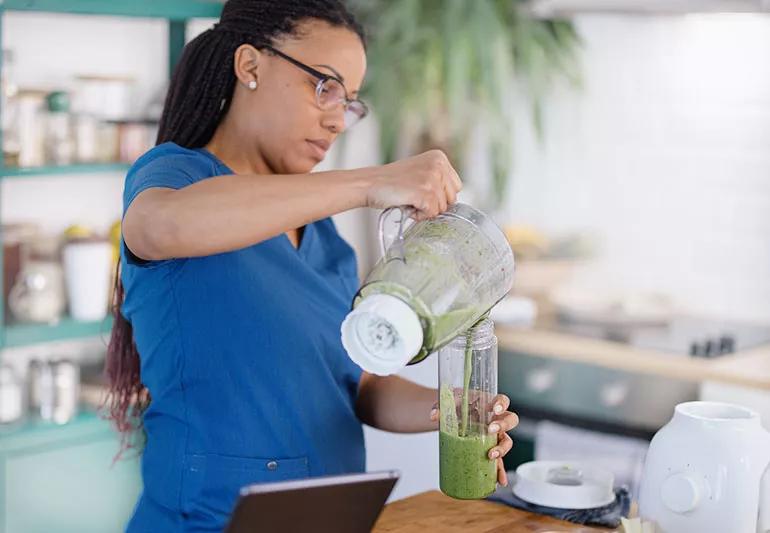When it comes to creating delicious and healthy drinks in your kitchen, the choice between a blender vs juicer can be a tough one. Both appliances offer unique benefits and can transform your culinary experience in different ways. Understanding the differences between them and knowing which one suits your needs can help you make the best choice for your lifestyle.

Introduction to Blenders and Juicers
Blenders and juicers are both designed to process fruits and vegetables, but they do so in distinct ways. A blender combines all ingredients into a smooth mixture, retaining all the fiber and nutrients of the whole food. In contrast, a juicer extracts the juice from fruits and vegetables, leaving behind the pulp and fiber. This fundamental difference impacts the nutritional content and texture of the final product.
How Does a Blender Work?
A blender works by using a powerful motor to spin blades at high speed, chopping and blending ingredients together. This process creates a thick, smooth mixture that includes all the fiber and nutrients of the original ingredients. You can learn more about how blenders work in our detailed guide here.
Types of Blenders
There are various types of blenders, including countertop blenders, immersion blenders, and personal blenders. Each type offers different features and advantages, depending on your specific needs.
Benefits of Using a Blender
Blenders are versatile appliances that can be used for a wide range of recipes, from smoothies to soups. They are ideal for those who want to incorporate whole foods into their diet and enjoy the full nutritional benefits of fruits and vegetables.
How Does a Juicer Work?
A juicer separates the juice from the pulp of fruits and vegetables using various methods, such as centrifugal force or slow masticating. The result is a clear, nutrient-rich juice that is free from fiber. For more insights into juicers, check out this link.
Types of Juicers
Juicers come in two main types: centrifugal and masticating (or cold press). Centrifugal juicers are faster but may produce heat that affects nutrient levels, while masticating juicers operate at slower speeds to preserve more nutrients.
Benefits of Using a Juicer
Juicers are perfect for those who prefer a quick, convenient way to consume a concentrated dose of vitamins and minerals. Juicing is an excellent choice for detox diets or for anyone looking to increase their intake of fruits and vegetables.
Nutritional Differences: Blender vs Juicer
The main nutritional difference between blenders and juicers is the presence of fiber. Blenders retain all the fiber, which is essential for digestion and maintaining stable blood sugar levels. Juicers, on the other hand, remove the fiber, resulting in a drink that is absorbed more quickly by the body.
Impact on Health
Both blenders and juicers offer health benefits, but your choice depends on your dietary goals. If you are looking to improve digestion and feel fuller longer, a blender might be the better option. If you want a fast-absorbing source of nutrients, a juicer could be more suitable.
Which Appliance is More Cost-Effective?
The cost of a blender or juicer can vary significantly depending on the brand, size, and features. Generally, blenders tend to be more affordable and versatile, offering a better value for those who want a multi-purpose kitchen appliance.
Long-Term Investment
Investing in a high-quality blender or juicer can pay off in the long run by encouraging healthier eating habits and reducing the need for store-bought juices or smoothies.
Ease of Cleaning: Blender vs Juicer
Cleaning is an important consideration when choosing between a blender and a juicer. Blenders are generally easier to clean, as they have fewer parts and can often be washed in a dishwasher. Juicers, especially masticating models, may require more effort to clean due to their intricate components.
Space and Storage Considerations
Both blenders and juicers can take up a considerable amount of counter space. However, blenders tend to be more compact and easier to store than juicers, making them a better choice for smaller kitchens.
Noise Levels: Blender vs Juicer
Blenders are typically noisier than juicers due to their high-speed motors. If noise is a concern for you, consider a juicer, which generally operates more quietly.
Versatility in the Kitchen
When it comes to versatility, blenders have the edge. They can be used for a wide range of recipes, including smoothies, soups, sauces, and even batters. Juicers are more specialized and primarily used for making juices.
Environmental Impact
Both blenders and juicers have an environmental impact, primarily related to their energy consumption and the packaging of fruits and vegetables. Choosing an energy-efficient model and sourcing local, organic produce can help reduce your carbon footprint.
Conclusion: Making Your Choice
Ultimately, the decision between a blender vs juicer comes down to your personal preferences and dietary goals. Blenders offer versatility and fiber retention, while juicers provide a quick, concentrated source of nutrients. Consider your lifestyle, budget, and the types of drinks you enjoy most when making your choice.

FAQ Section
1. Can I use a blender to juice?
Yes, you can use a blender to make juice by blending fruits and vegetables with water and then straining out the pulp.
2. What is the healthiest option: blender or juicer?
Both are healthy options, but blenders retain more fiber, which is beneficial for digestion and overall health.
3. How do I clean a juicer?
Cleaning a juicer involves disassembling the parts and washing them with warm, soapy water. Some parts may be dishwasher safe, but it’s best to check the manufacturer’s instructions.
This article contains affiliate links. We may earn a commission at no extra cost to you.

